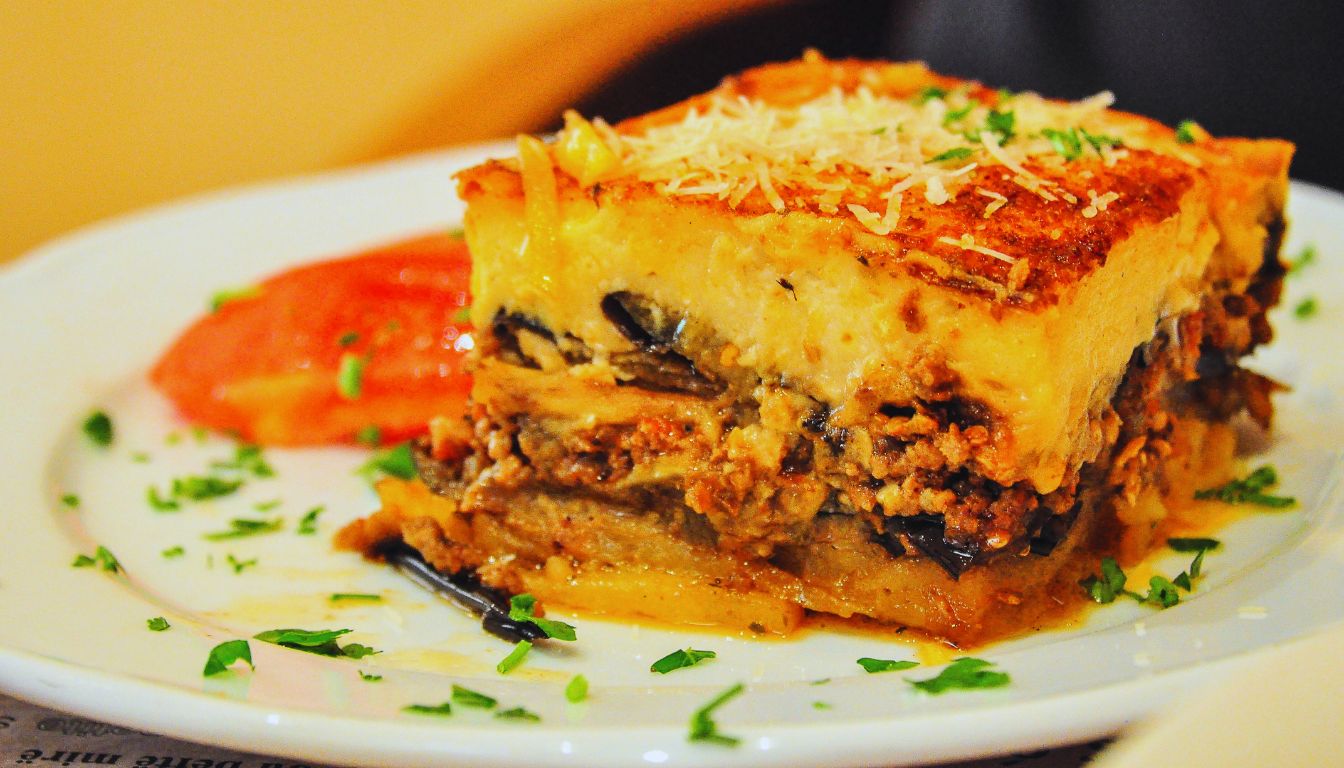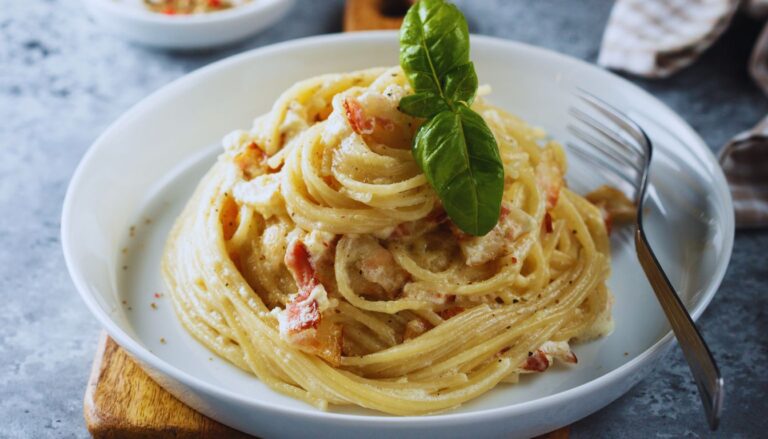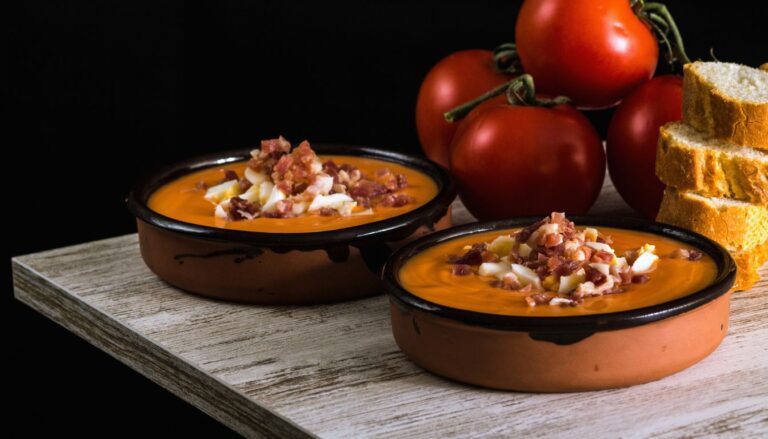Moussaka, Athens Greece
In the enchanting city of Athens, where ancient temples watch over bustling tavernas, one dish stands as a testament to Greek culinary mastery – Moussaka. This velvety layered casserole, with its perfect harmony of eggplant, spiced ground meat, and creamy béchamel sauce, represents the pinnacle of Greek comfort food. More than just a dish, it embodies the warmth of Greek hospitality and the sophisticated evolution of Mediterranean cuisine.
Table of Contents
Historical and Cultural Significance
Moussaka’s story weaves through centuries of Mediterranean culinary history, reflecting Greece’s position at the crossroads of East and West:
- Ancient Origins: Traces its roots to the Arab world, where early versions featured layers of meat and vegetables
- Ottoman Influence: Spread throughout the Balkans during Ottoman rule
- Modern Evolution: Transformed in the 1920s by Nikolaos Tselementes, who added the French béchamel sauce
- Cultural Impact: Became a symbol of Greek cuisine’s refinement and sophistication
Today, Moussaka represents:
- Family gatherings and celebration meals
- Traditional Sunday lunch traditions
- Greek culinary innovation
- Cultural pride and heritage
Ingredients and Preparation
The creation of authentic Moussaka is a labor of love, requiring patience and attention to detail:
Essential Components:
- Sliced eggplant (aubergine)
- Ground lamb or beef
- Potatoes (in some regional variations)
- Béchamel sauce
- Tomato sauce
- Greek herbs and spices
Key Seasonings:
- Cinnamon
- Allspice
- Nutmeg
- Fresh parsley
- Greek oregano
- Bay leaves
Traditional Preparation Steps:
- Salting and draining eggplant slices
- Preparing meat sauce with aromatics
- Making béchamel sauce
- Careful layering of components
- Slow baking for perfect integration
Where to Try It
Athens offers numerous establishments known for their exceptional Moussaka:
Traditional Tavernas:
- To Kafeneio: Historic establishment in Plaka
- Diporto: Hidden gem in the Central Market area
- O Tzitzikas ki o Mermigkas: Famous for traditional recipes
- Ta Karamanlidika tou Fani: Known for authentic preparation
Upscale Venues:
- Cookoovaya: Modern interpretation
- Aleria: Gourmet version
- Funky Gourmet: Contemporary twist
- CTC: Innovative approach
Eating Etiquette and Customs
Understanding Greek dining customs enhances the Moussaka experience:
- Traditionally served as a main course
- Often accompanied by Greek salad and bread
- Best enjoyed at a leisurely pace
- Usually served warm, not hot
Seasonal Considerations
While available year-round, certain seasons offer unique experiences:
Peak Seasons:
- Summer (June-August): Fresh local eggplants
- Spring (April-May): Perfect weather for outdoor dining
- Fall (September-October): Harvest celebrations
Special Occasions:
- Easter celebrations
- Summer festivals
- Family Sunday lunches
- Name day celebrations
Modern Interpretations
Contemporary Greek chefs are reinventing this classic while respecting its essence:
- Vegetarian versions using mushrooms or lentils
- Lighter versions with yogurt-based sauce
- Individual portions for fine dining
- Deconstructed presentations
- Gluten-free adaptations
Practical Information and Travel Tips
Best Times to Dine:
- Lunch: 1:30-3:30 PM
- Dinner: 8:00-10:00 PM
- Avoid tourist rush hours
- Book ahead for popular establishments
Ordering Tips:
- Learn basic Greek phrases:
- “Mia moussaka parakalo” (One moussaka please)
- “Efharisto” (Thank you)
- Ask about portion sizes
- Consider sharing – portions are generous
Price Guidelines:
- Traditional tavernas: €8-12
- Upscale restaurants: €12-18
- Tourist areas may charge more
- Most establishments accept cards
Cultural Insights:
- Take time to enjoy your meal
- Engage with local servers
- Learn about regional variations
- Appreciate the preparation time
Making Your Moussaka Journey Memorable
Experience this beloved dish across different venues to appreciate its variations. Take time to understand the careful preparation process and the story behind each establishment’s recipe. Remember that Moussaka is more than a meal – it’s a gateway to understanding Greek culture, hospitality, and culinary tradition. Engage in the Greek custom of long, leisurely meals shared with good company.













